nones
What do you have to say about "living abundantly"? How do you deal with anxiety when you think about the future of churches?
“Very truly, I tell you, anyone who does not enter the sheepfold by the gate but climbs in by another way is a thief and a bandit. The one who enters by the gate is the shepherd of the sheep. The gatekeeper opens the gate for him, and the sheep hear his voice. He calls his own sheep by name and leads them out. When he has brought out all his own, he goes ahead of them, and the sheep follow him because they know his voice. They will not follow a stranger, but they will run from him because they do not know the voice of strangers.” Jesus used this figure of speech with them, but they did not understand what he was saying to them. So again Jesus said to them, “Very truly, I tell you, I am the gate for the sheep. All who came before me are thieves and bandits; but the sheep did not listen to them. I am the gate. Whoever enters by me will be saved, and will come in and go out and find pasture. The thief comes only to steal and kill and destroy. I came that they may have life, and have it abundantly.
~ John 10:6-10
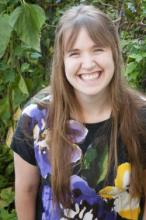
Editor's Note: Anne Marie Roderick tells her story of why she's NOT part of the 20 percent of Americans who identify with "no religion in particular." Find more stories (or share your own) HERE. Read about the study HERE.
It’s not surprising that a third of my peers say they are religiously unaffiliated. Our religious lives are too complex these days to fit in neat boxes with one-word labels. I may be a “Christian,” but does that mean that I am like other Christians? Not necessarily.
There is sometimes more truth in being a “none” — in stating what we are not — rather than trying to pin down exactly what we are. But, I choose to affiliate anyway. Here’s why I am not a “none:"

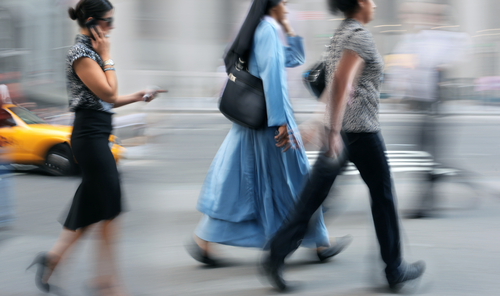
Editor's Note: Alyssa Bain tells her story of why she's part of the 20 percent of Americans who identify with "no religion in particular." Find more stories (or share your own) HERE. Read about the study HERE.
Last weekend I watched Sister Act (both of them, actually) with some friends (who also happen to be nuns)
I am not a nun. I am not a novice. I am not Catholic. Some days I wonder if I am even Christian.
According to a recent study by the Pew Forum, I actually just might be a “none.”
The research is out, and it seems that my generation is stumping the world as the generation that, for whatever reason, refuses to label itself.
Personally, I’ve been having trouble with labeling myself for quite some time. Lutheran. Non-denominational. Methodist. Universalist. Evangelical. Protestant.
But none of them quite fit right. The problem with labels is that there are always exceptions. Nothing is black and white. The label “none” lumps together atheists, agnostics, and, well, me. I am not an atheist. I might be kind of agnostic, but there really is just something about that Jesus guy.
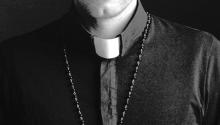
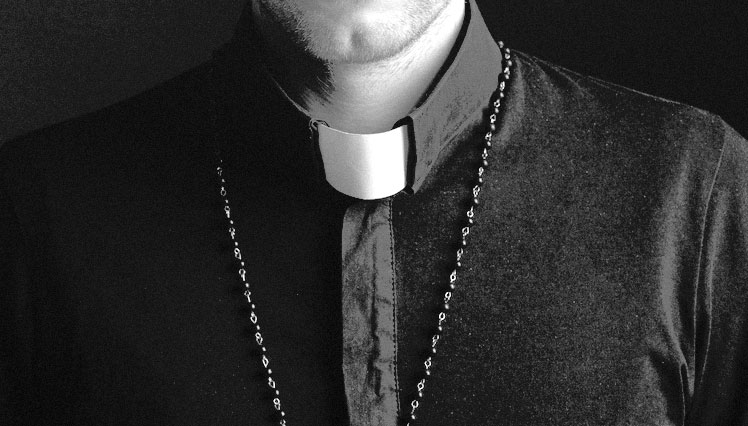 Editor's Note: Kevin Gonzaga tells his story of why he's part of the 20 percent of Americans who identify with "no religion in particular." Find more stories (or share your own) HERE. Read about the study HERE.
Editor's Note: Kevin Gonzaga tells his story of why he's part of the 20 percent of Americans who identify with "no religion in particular." Find more stories (or share your own) HERE. Read about the study HERE.
Three years ago when I arrived at seminary to pursue my calling to fulltime pastoral ministry, one would probably have struggled to find someone in my generation more committed to the ministry and vitality of the local church.
While imperfect, I believed the church was the best hope of the world, and it was better to stay and work toward change than abandon the church and look for greener pastures. A year and a half later, I wrote a blog post explaining that I was no longer a Christian. I fear that this would only deepen the stereotype that seminary is a place where people lose their faith, so I should explain.
The truth is I am one of growing number of people who choose not to affiliate with any organized religion. I am a “none,” and my journey to “none” started a long before I left for seminary. My disillusionment with, and eventual abandonment of, Christianity did not center around one traumatic event that shattered my faith, but rather it was something that coalesced from numerous experiences over a long time.
It really started when I began studying the scriptures for myself in college. I was shocked to find many things I had been taught by the Church were wrong, were not in the Bible, or were even contrary to what the scriptures actually taught.
Editor's Note: Sojourners has launched this new blog series to help shed light on the nation's latest "religious" affiliation. Go HERE to read their stories. Or EMAIL US to share your own.
PBS Religion & Ethics Newsweekly has launched a new mini-series on the rise of the unaffiliated. Go HERE to read more about this week's epidsode.
Watch None of the Above: Political Implications on PBS. See more from Religion & Ethics NewsWeekly.
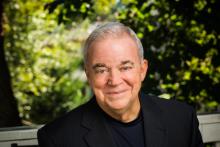
The Pew Forum recently released a new study, “Nones on the Rise.” This was not about my friends called the “Nuns On The Bus,” who just did a tour around the country focusing on social justice. Rather, It details the concerning trend of those in our country who have given up on religion altogether.
Social scientists tell us that adults, especially young adults, are increasingly disconnected from our established religious traditions. “Nones,” the Pew forum calls them, have grown from 15 percent of U.S. adults to 20 percent in only five years. One-in-three adults under 30 check the religious affiliation box, “None of the above” or “Unaffiliated.” Despite the fact that 68 percent of nones believe in God, only 5 percent of them attend church once or more a week, and 22 percent attend monthly/yearly. (Learn more about this group in our blog series Meet the Nones.)
But the focus on the next generation is not all bad news. On Tuesday, I had the pleasure of moderating a diverse panel of seven young evangelicals. Each had unique experiences and backgrounds. Some self-identified as liberal, while others self-identified as conservative. But those political ideologies could not separate their core evangelical principles.


Editor's Note: Megan Monaghan Rivas tells her story of why she's part of the 20 percent of Americans who identify with "no religion in particular." Find more stories (or share your own) HERE. Read about the study HERE.
There are never really two kinds of people in the world. But for purposes of this post, I’ll posit that there are two kinds of “nones” in the world – “nones” who would be part of a church if they could just find the right one, and “nones” who have no desire to be part of a church even if it matched them perfectly. I place myself in the latter category.
Like many “nones,” I started out as a “some.” I was reared in the Roman Catholic Church and educated in Catholic schools. As luck and the development curve would have it, just after confirmation (at age 14) I started finding out things about the church that I could not stand up and be counted for. The church’s policies concerning women and homosexuals seemed to me to stand in deliberate polar opposition to the Gospel message. And the church is not known for willingness to change from the inside. I didn’t have another 2,000 years to wait. My first “adult” move in the church was to leave it.
PBS Religion & Ethics Newsweekly has launched a new mini-series on the rise of the unaffiliated. Go HERE to learn more.
Watch None of the Above: Who Are They? on PBS. See more from Religion & Ethics NewsWeekly.

[The "nones"] recite history and Christian leadership's collusion with the agents of empire-building and warfare. Then they say something like, “I'd rather live like Jesus than be a Christian.”
They see the Church as the rich young man and they wonder if anyone actually follows Jesus anymore.
Of course, this is not the only demographic shift at work in the religious life of the world.
There are more Anglicans in Nigeria than there are in England.
More Presbyterians in Ghana than in Scotland. ..
More Baptists in Southeast Asia than in the Southeastern United States.
More Christians go to church in China than in Europe.
In 1900, 71 percent of the world's Christians were in Western Europe. By 2000 that percentage dropped below twenty percent in some European nations.
Here's the real kicker: these are not problems to fix. They are simply realities to be faced.

Except for presidential candidates and some parts of the Bible Belt, the days when church membership was necessary for social acceptance are long gone. Many Americans view religion as suspect or superfluous or both.
In fact, the latest data from the Pew Forum on Religion & Public Life say that a record-high one in five Americans -- and one in three adults under age 30 -- are religiously unaffiliated.
So why did all 1,500 seats sell out for a debate I moderated a few months ago entitled “Has Science Refuted Religion?” at the California Institute of Technology? Why should the brilliant minds of the Caltech community even care, especially since skeptics, rather than true believers, made up the majority of the audience?
As the dean of a theology school, the question is of high interest to me, and I think I know the answer.
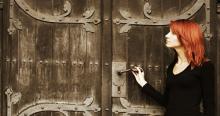
OK, church folks. Fasten your seat belts. But don’t hunker down.
There’s a new study out this week that shows that one-in-five Americans has no religious affiliation. Not Baptist, not Catholic, not Lutheran, not Jewish, not Muslim.
For those of us in the world of organized religion, this just adds more data to a trend we have seen accelerating over the last decade.
In 2007, about 15 percent of the adult population in the U.S. described itself as unaffiliated with any religion. In a comparable survey done this summer and released on Tuesday by the Pew Research Center’s Forum on Religion and Public Life, the number hit 20 percent. And if you just focus on those under 30, the religiously unaffiliated constitute one third of that group.
Among those of us who are professional religious types, this is the kind of data that can prompt a lot of gloomy introspection about relevance and a lot of finger pointing at those who are not interested in the same kinds of religious expression that we are.
Let me suggest there’s a less gloomy and less judgmental way to think about this data.

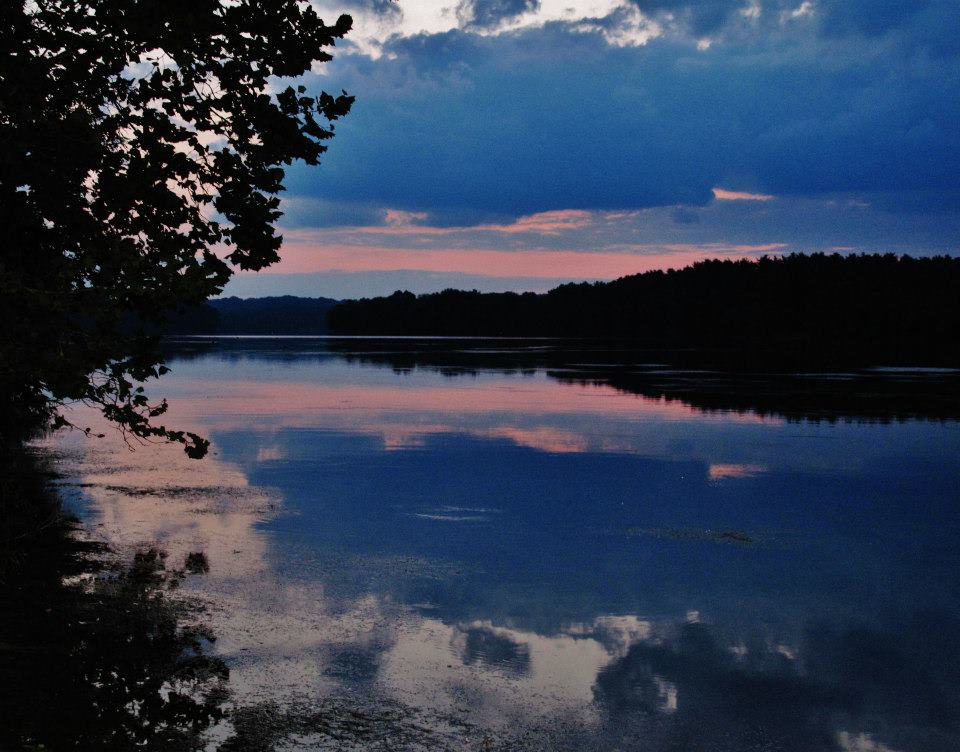
Editor's Note: Melissa Otterbein tells her story of why she's part of the 20 percent of Americans who identify with "no religion in particular."Find more stories (or share your own) HERE. Read about the study HERE.
A "recovering Evangelical," author Melissa identifies with the "nones" after church experiences in the non-denominational Church, Lutheran Church, Church of God, United Church of Christ, and the kind of Church that happens when you have hour-long conversations with people who are materially poor yet rich in spirit. Each of these "Churches" (and those not mentioned) depict Christ in beautiful ways, she believes, but feels that solely identifying with a denominational designation hasn't seemed to fully capture her faith experience. Though "none" might seem like a shocking response to "which religious tradition do you closely identify with?" it's one that, "offers freedom in Christ that brings me to closer to the Kingdom of God in the here and now."
I am tired of explaining away my faith.
I am tired of defending, “proving,” withholding my true feelings for fear of religious retaliation.
I’m tired of watching some people argue their faith, trying to “win people to Christ” with their cogent, convincing “answers.”
I’m tired of watching Jesus be sold, marketed, put on display.
I’m tired of watching certain people try to convince the world why their God is the right God.
I’m tired of listening to people deify their Bible by retorting this verse and that verse when our God is so much bigger than the sole medium of Genesis-Revelation.
I’m tired of platitudes about the Word and faith and sin and grace that I’ve heard over and over again; for every time I hear these trite remarks, I question if we’ve lost the unadulterated beauty behind such venerable passages.

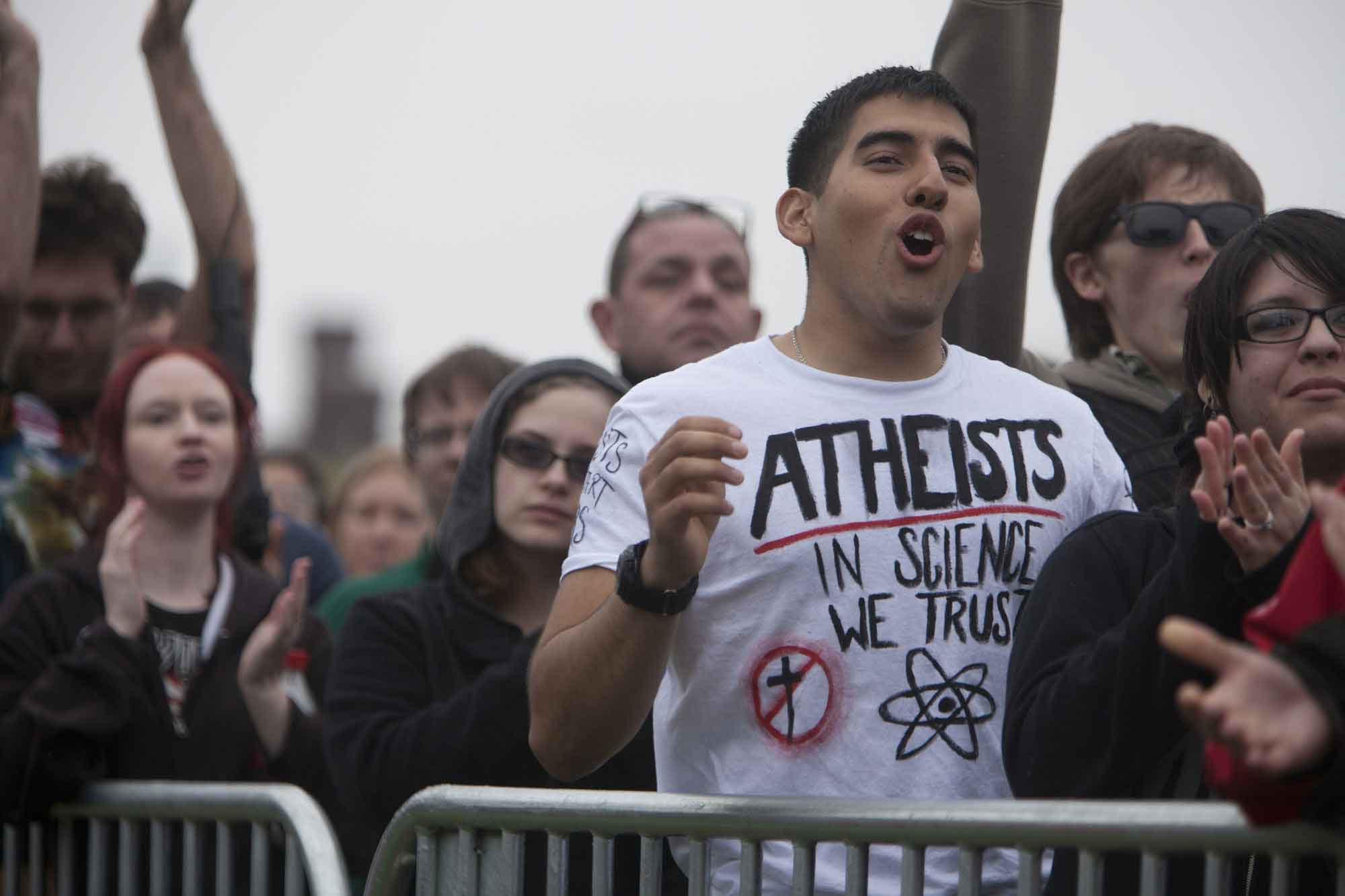 Meet John Q. Nones, a young, white male who is making a big impression on the American religious landscape for something he doesn't do: align with any religious group.
Meet John Q. Nones, a young, white male who is making a big impression on the American religious landscape for something he doesn't do: align with any religious group.
The rise of the religiously unaffiliated, or “nones,” as documented in a new study from the Pew Forum on Religion & Public Life, has major implications for almost all aspects of American life -- from religion to business to culture.
Whether you believe the proliferation of Mr. Nones is a depressing or hopeful trend, it pays to get to know him.
Who is John Q. Nones? Here's a snapshot drawn from the Pew Forum’s new poll.
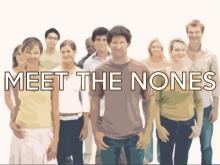
Editor's Note: Sojourners has launched this new blog series to help shed light on the nation's latest "religious" affiliation. Scroll down to read their stories. Or EMAIL US to share your own.
Which religious tradition do you most closely identify with?
- Protestant
- Catholic
- Mormon
- Muslim
- Jewish
- Orthodox
- Other Faith
- Unaffiliated
Given these options — or even if you throw in a few more like Buddhist, Hindu, Agnostic — I would choose “Unaffiliated.” That puts me into a category with one-in-five other Americans, and one-in-three millennials, aptly named the “nones.”
In that vein, I introduce our new blog series: Meet the Nones. Through this series, I hope to encourage discussion, debate, and elucidate the full picture of what it means to be losing your religion in America.
Editor's Note: Would you like to share your story on this topic? Email us HERE.